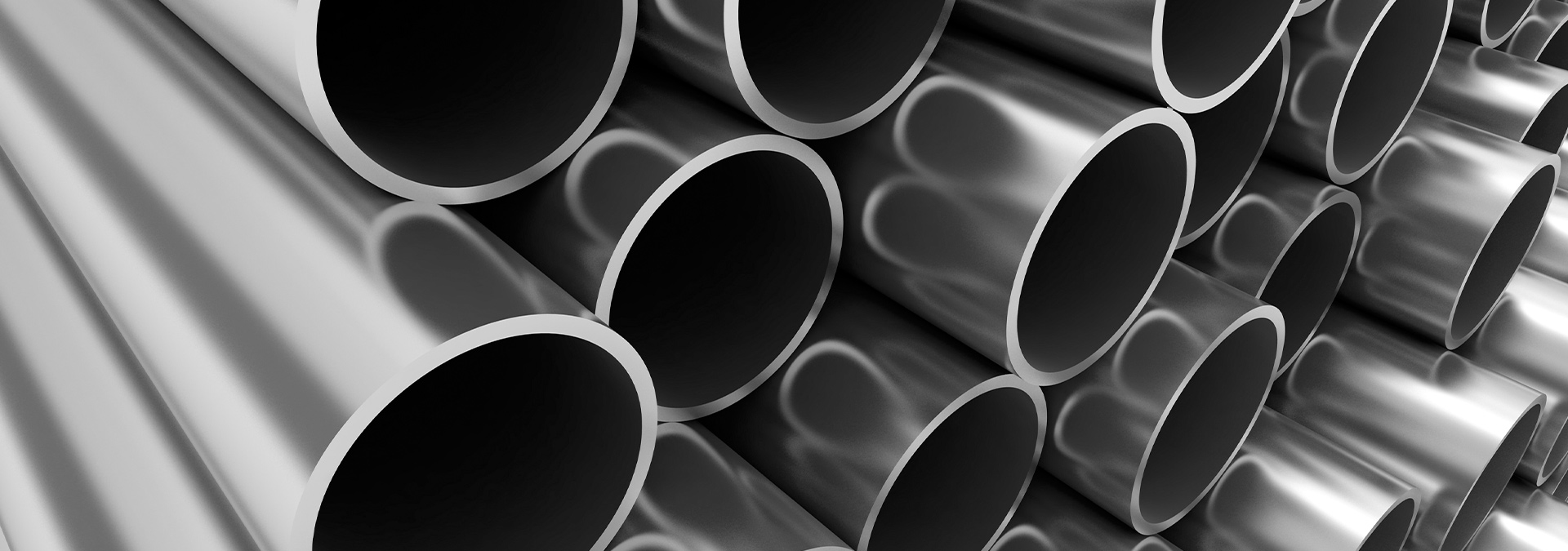Nickel-alloy-based pipe systems are considered some of the most appropriate materials for use in high-temperature and severely corrosive environments. Nickel is a common metallic element that has tensile strength, as well as exceptional corrosion and oxidation resistance properties. Nickel is fully recyclable, and can alloy easily with most metals such as copper, chromium, and iron; resulting in technically superior pipes and fittings that can handle the most demanding applications and withstand the harshest working environments. Nickel alloys are exceptionally oxidation resistant, and can operate in temperature ranges from cryogenic up to 1,000 degrees Celsius and beyond.
The most important advantage of nickel alloy pipe systems is their ability to withstand harsh environments and stresses from working with corrosive chemicals. They offer superior performance in processes where acids, alkalis, or other corrosive substances are handled. In addition, they are ideal for offshore applications and can withstand high salinity environments even in hot temperatures. This makes them a preferred alternative for use in the oil and gas, refining and petrochemical processing, offshore and marine, as well as the power and desalination industries. They are also relied on in nuclear power plants!
Their high resistance to oxidation and reduction makes them ideally suited for situations where they are required to perform over long project life cycles, or where accessing them for maintenance and repair is prohibitive or costly. Pipe systems that are required to perform in circumstances where access for maintenance or repair is compromised are prime examples of situations where nickel and nickel alloy pipes such as Inconel-alloy 625 are used.
Created in the early 1960s, Inconel alloy 625 is among the preferred alloy among nickel super-alloys. It is tough, light, versatile, and has outstanding chemical and mechanical properties that make it suitable for a whole range of applications in the oil & gas, processing, and desalination industries. In addition to its outstanding mechanical and physical properties, it can be easily machined into irregular shapes while maintaining its strength and its corrosion resistance properties, even in extreme heat. It can also be welded and joined with other pipe system materials. It is extremely ductile and can handle high-stress loads without breaking, pitting crevice corrosion, or fatigue. Its strength also makes it ideal for applications where the use of thinner piping diameters is required due to weight and space considerations such as offshore and marine.
The outstanding corrosion resistance of nickel alloys is just one reason they’re preferred for critical, high-stress, and high-temperature applications where component failure can prove catastrophic. This can have expensive and dangerous consequences when it comes to critical applications such as waste processing, nuclear energy production, and the aerospace industry. Corrosion is influenced by many factors. Metals can be corroded by oxidizing agents such as chlorine, oxygen, and hydrogen peroxide, as well as different forms of acid: hydrochloric, sulfuric, phosphoric, acetic, and formic. Heat can accelerate corrosion, and it can also be aggravated by the presence of contaminants – which may go undetected.
When exposed to corrosive media, it forms a layer of nickel oxide that effectively protects the metal from further damage. This property continues to work even at extremely high temperatures. Nickel alloys, such as alloys 22 and C276 are also examples of nickel-molybdenum-chromium alloys that display truly exceptional anti-corrosion properties across a range of media and temperatures. Both alloys are prime choices for components that will be exposed to extreme heat and harsh chemicals. Flue gas desulphurization, waste fluid treatment, chemical processing, and pulp & paper processing are just some of the applications they share.
One thing these two alloys have in common is the addition of a powerful anti-corrosion ingredient: chromium. Chromium enhances the inherent corrosion resistance of alloys in a similar way to nickel. When exposed to oxygen – such as, when a system is put into operation for the first time – it reacts to form a fine protective layer of chromium oxide, effectively providing the alloy with an additional protective barrier against corrosion.
The primary disadvantage of nickel alloy pipe system materials is their relatively high initial cost compared to other materials. However, when taken over the lifespan of a project, or when factoring in the cost of downtime from maintenance and repair, nickel alloys can become the more economical alternative. Another disadvantage is that because of its complex structure, welding, and forming it needs professional handling by experts using the right equipment and materials – especially when connecting to systems using different materials and requiring filler metals with a similar composition to the base metal in use. Working with a reputable supplier that has the requisite product knowledge, technical expertise, available stocks, and relevant equipment is a critical factor when considering using nickel alloys.
Gerab National Enterprises has been supplying corrosion-resistant nickel alloy pipe system solutions for power, desalination, and seawater infrastructure works as specified by the world’s leading consultants and meeting ASTM grades and certification specifications. In addition, and from its vast in-house inventory, Gerab supplies the region’s leading NOCs and IOCs (such as Saudi Aramco, ADNOC, and KOC) with their pipe system requirements across their various on-shore and offshore, upstream through downstream, chemical and process plant mega-projects. Gerab’s technical expertise in handling nickel alloys and Inconel-alloy 625 in seawater infrastructure environments, process plants, and oil & gas fields provide the reassurance needed when depending on high-performance pipe system materials. For over 45 years, Gerab has earned the trust of its clients, and by supplying them with quality-assured, and internationally certified pipes, fittings, flanges, stud bolts, valves, gaskets, and related services for their projects – delivering the right products, using the appropriate materials, at the right time, every time.


